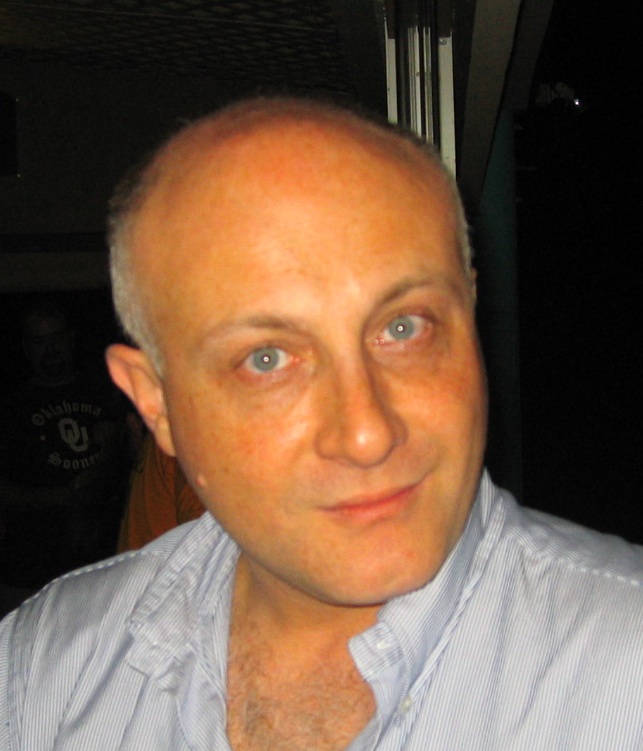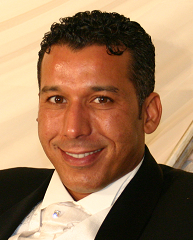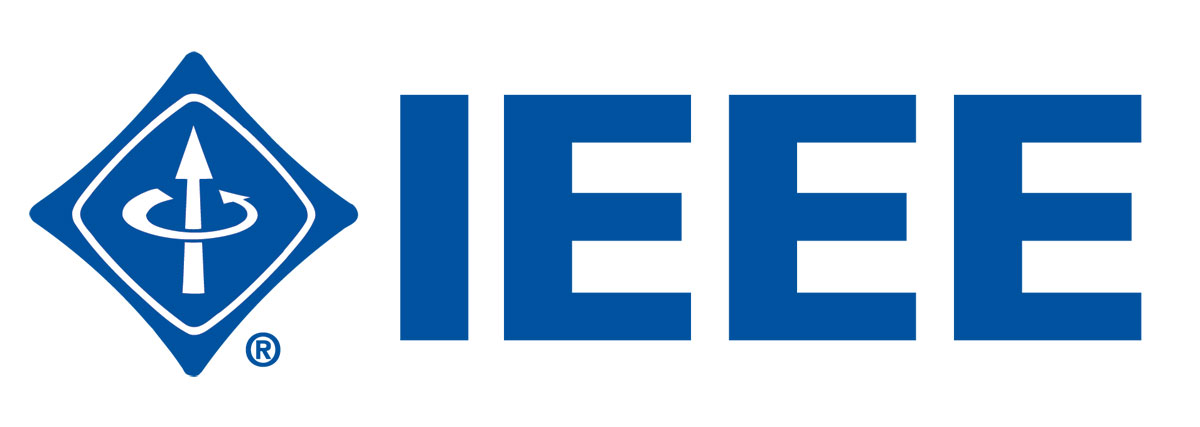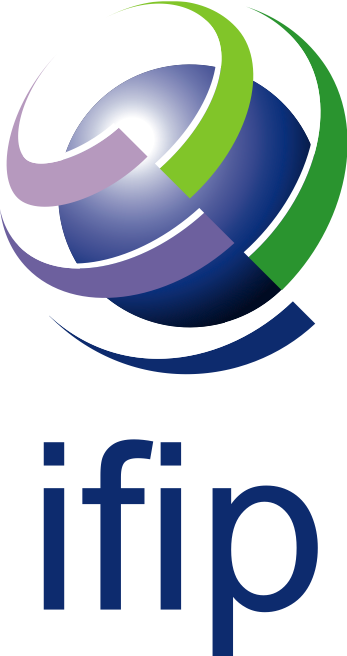Keynote Speakers
- Dr. Stefano Galli, Panasonic R&D Company of America (PRDCA), USA
- Pr. Raouf Boutaba, Waterloo University, CA
- Pr. Guy Pujolle and Dr. Reda Reda , UPMC, FR, and ICT, AT
- Pr. Kaveh Pahlavan, Worcester Polytechnic Institute, Massachusetts, USA
- Pr. Matti Latva-Aho, University of Oulu, Finland
Invited Speakers
- Pr. Sami Tabbane, Sup'Com, Tunisia
- Pr. Omar Charkaoui, UQAM, CA
- Pr. Valeriy Naumov, Lappeenranta University of Technology, FI
- Dr. Reda Reda and Pr. Olli Martikainen, Information Communication Technologies, AT, and ETLA, FI
- Pr. Bayan Sharif, Newcastle University, UK
*****

Dr. Stefano Galli, Panasonic R&D
Power Line Communications: Applications, Technology Challenges and Standardization Efforts
There is today a growing interest in the prospects of re-using the existing power line infrastructure to support grid applications, and to provide broadband access to the home and LAN connectivity within the home or office. In this talk, the main applications of power line communications will be described together with the main communications challenges that make high data rate data communications over power lines a very ambitious goal. Recent standardization activities will also be reviewed, giving particular emphasis to the IEEE P1901 Working Group and the ITU-T G.hn activities.
BiographyStefano Galli received his M.S. degree and Ph.D. in Electrical Engineering from the University of Rome "La Sapienza" (Italy) in 1994 and 1998, respectively. He is currently Lead Scientist in the Strategic R&D Planning Office of Panasonic in San Jose, California, where he works on several projects in communications and networking. Prior to this position, he was a Teaching Assistant in Signal Theory at the Info-Com Dpt. of the University of Rome from 1996 to 1998, and a Senior Scientist in Bellcore (now Telcordia Technologies) from 1998 to 2006.
Dr. Galli has been elected to the position of Member-at-Large of the Board of Governors of the IEEE Communications Society, and will serve for the term 2008-2010. He is also currently serving as Chair of the "Communications and Signal Processing" Technical Committee Cluster, where he oversees the technical activities of several IEEE Technical Committees and reports directly to the IEEE Vice President for Technical Activities, and as Chair of the Technical Committee on "Power Line Communications."
Dr. Galli has served as Chair or Member of the Technical Program Committee in numerous conferences. Most recently, he has served as Co-Chair of the Technical Program Committee of the 2008 IEEE International Symposium on Power Line Communications and its Applications (ISPLC). He has also served as Guest Editor for special issues in the IEEE Communications Magazine and the IEEE Journal on Selected Areas in Communications (JSAC), and as Associate Editor for the IEEE Signal Processing Letters for the three year term 2005-2007 (Area Editor for Signal Processing for Communications).
Dr. Galli's research efforts are devoted to various aspects of xDSL systems, wireless/wired home networks, wireless communications, optical CDMA, and power line communications. His research interests also include detection and estimation, communications theory, and signal processing. He is an IEEE Senior Member, a reviewer for several journals and conferences, has published around 90 papers, and holds five international issued patents and several pending ones.

Pr. Raouf Boutaba, University of Waterloo
Do Wireless Mesh Networks have a Future?
Advances in wireless technologies have made the dream of ubiquitous broadband connectivity closer than ever. Still, the challenge remains - how to best deploy and deliver these services in a way that is economically feasible. Several years ago, Wireless Mesh Networks (WMNs) burst onto the scene with the promise of easy and inexpensive networks offering WLAN-like services. The idea has caught on, in both industry and research communities, with considerable development, standardization efforts, and numerous commercial products. Though successful, both research and practice has revealed limitations, particularly in capacity and scalability. The WMN suffers from a bottleneck and severe resource limitations, created by the inherent characteristics of the architecture. With these concerns, the question must be asked - is the WMN merely an intermediary or temporary solution? This talk will address the key features of a WMN, and how they might be exploited in order to make the WMN an essential part of delivering wireless services in the future.
BiographyRaouf Boutaba is a Professor of Computer Science at the University of Waterloo and a Cheriton faculty fellow. Before that he was the Director of the Telecommunications and Distributed Systems Division of the Computer Science Research Institute of Montreal. He held Visiting Professor Positions at the University of Toronto (Canada), the University of Pierre et Marie Curie, the University of Versailles, ENST- Paris, Paris 13 and Paris 5 (France), and POSTECH (Korea). He is currently a distinguished speaker of the IEEE Communications Society and served in the past as a distinguished speaker of the IEEE Computer Society. He is the Chairman of the IEEE Communications Society Technical Committee on Information Infrastructure, the founding chair of the Technical Committee on Autonomic Communications, and the Director of the Conference Publications Board. He is a Past Chair of the IFIP Working Group on Networks and Distributed Systems Management, Past Director of the Related Societies board, and Past Director of the standards board of the IEEE Communications Society. He is the founder and Editor in Chief of the IEEE Transactions on Network and Service Management, on the advisory editorial board of the Journal of Network and Systems Management, and on the editorial board of the KIKS/IEEE Journal of Communications and Networks and others. He acted as the general or program chair for several IEEE and IFIP conferences. His research interests include network, resource and service management in wired and wireless networks. He has published more than 300 papers in refereed journals and conference proceedings and received several journal and conference Best Paper Awards such as the 2008 Fred W. Ellersick Prize Paper Award, the KIKS/IEEE Journal of Communications and Networks Best Paper Award, the IFIP/IEEE IM Best Student Paper Award and others. He received several recognitions such as the Premier's Research Excellence Award, two NORTEL research excellence Awards, the IEEE Communications Society Hal Sobol Award, and a fellowship of the Faculty of Mathematics as well as an outstanding Performance Award at the University of Waterloo.
The present and the future for the wireless area
Broadband and adhoc wireless networks
Cognitive Radio Systems
4G networks Technologies and Challenges
Wireless Virtualization
New Generation Networks Traffic Theory
R&D in Wireless - Industry or Universities
WiMAX


